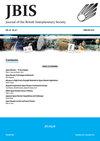Coordinating European Human Spaceflight Programmes with UK Space Policy Objectives
Q4 Engineering
Jbis-Journal of the British Interplanetary Society
Pub Date : 2023-08-07
DOI:10.59332/jbis-076-06-0197
引用次数: 0
Abstract
With the International Space Station (ISS) coming to the end of its life, the next decade will see significant changes in human spaceflight after a quarter of a century of stasis. America has decided NASA will purchase all its civil Low Earth Orbit (LEO) capability from commercially run space stations. All these companies will be American and as a consequence, foreign participants are in a weaker position than they are with the ISS, which operates under government to government agreements. Europe has to decide whether to accept more American control of its programmes or to create an autonomous capability. Most ESA nations have policies that are driven by prestige motivations and these would be considerably reduced. Also, these nations have decades of investment in a human spacecraft industry which will be at risk in the new post ISS environment. Developing an independent European human infrastructure in LEO is both achievable and probably the best route to meet these national objectives. Although an ESA member, the United Kingdom has different national Space objectives, which emphasise direct economic return; further, it does not have an indigenous industry to protect. However, the future of human spaceflight will have an increasing significant element of economic exploitation, which will be accelerated by the American commercial post-ISS architecture, which the UK cannot ignore. Furthermore, while all ESA members would benefit from an autonomous European capability, there is a potential tension between nations due to differing national policy objectives. Those with prestige objectives just need a working infrastructure that fits a funding corridor, but the British economic objectives will require an economically competitive capability. Keywords: Space Policy, UK Space Programme, Human Spaceflight协调欧洲载人航天计划与英国空间政策目标
随着国际空间站(ISS)即将结束它的生命,在经历了四分之一个世纪的停滞之后,未来十年将见证人类太空飞行的重大变化。美国已经决定,美国国家航空航天局将从商业空间站购买其所有民用低地球轨道(LEO)能力。所有这些公司都将是美国公司,因此,外国参与者的地位比他们在国际空间站的地位更弱,国际空间站是在政府间协议下运作的。欧洲必须决定是接受美国对其项目的更多控制,还是建立自主能力。大多数欧空局国家的政策都是由声望动机驱动的,这些政策将大大减少。此外,这些国家在载人航天工业上进行了数十年的投资,这将在新的后国际空间站环境中面临风险。在近地轨道上发展独立的欧洲人类基础设施既是可以实现的,也是实现这些国家目标的最佳途径。虽然是欧空局成员,但联合王国有不同的国家空间目标,强调直接经济回报;此外,它没有本土产业需要保护。然而,人类太空飞行的未来将具有越来越重要的经济开发元素,这将由美国的商业后国际空间站架构加速,这是英国不能忽视的。此外,尽管欧空局所有成员国都将受益于欧洲的自主能力,但由于各国政策目标不同,各国之间存在潜在的紧张关系。那些有声望目标的国家只需要一个适合资金走廊的可用基础设施,但英国的经济目标将需要一种经济上的竞争力。关键词:空间政策,英国空间计划,载人航天
本文章由计算机程序翻译,如有差异,请以英文原文为准。
求助全文
约1分钟内获得全文
求助全文
来源期刊

Jbis-Journal of the British Interplanetary Society
Earth and Planetary Sciences-Space and Planetary Science
CiteScore
0.70
自引率
0.00%
发文量
0
期刊介绍:
The Journal of the British Interplanetary Society (JBIS) is a technical scientific journal, first published in 1934. JBIS is concerned with space science and space technology. The journal is edited and published monthly in the United Kingdom by the British Interplanetary Society.
Although the journal maintains high standards of rigorous peer review, the same with other journals in astronautics, it stands out as a journal willing to allow measured speculation on topics deemed to be at the frontiers of our knowledge in science. The boldness of journal in this respect, marks it out as containing often speculative but visionary papers on the subject of astronautics.
 求助内容:
求助内容: 应助结果提醒方式:
应助结果提醒方式:


